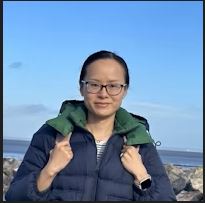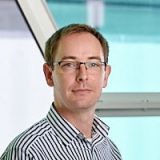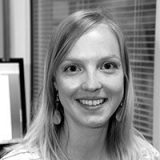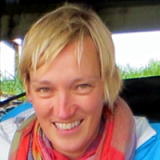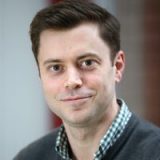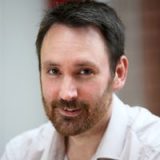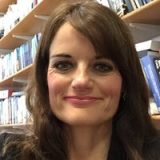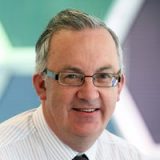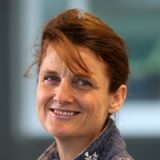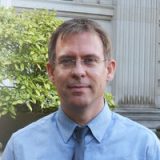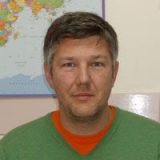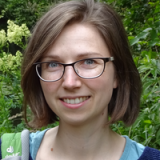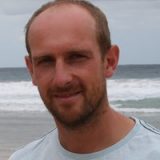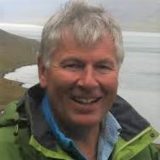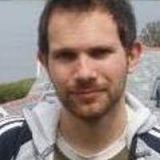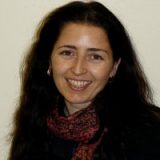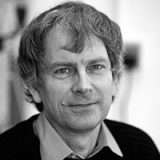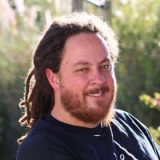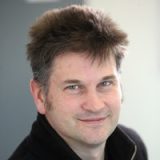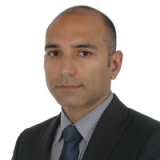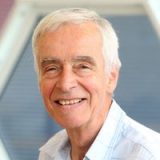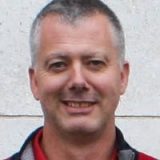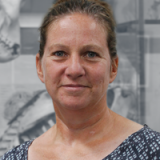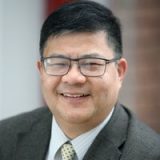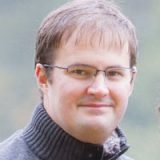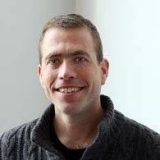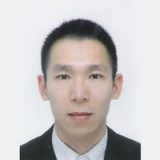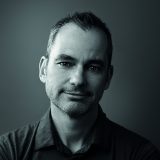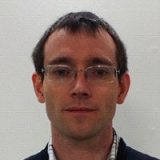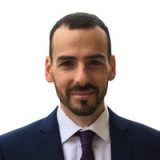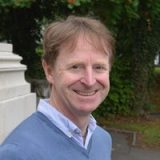Lu’s research focuses on simulating and assessing extreme hydrometeorological events like floods and heat waves, particularly in relation to climate change. Lu employs satellite remote sensing, environmental modelling, and machine learning to analyse urban and watershed contexts.
Michael prior-jones
Mike is an electronic engineer with research interests relating to the development of new instruments for field data collection particularly in glaciology.
Cedric Berger
Cedric’s research covers the understanding of the epidemiology of diarrheal disease in UK and in countries with low income as well as exploration the relationships between enteric pathogens and the environment.
More information on Cedric’s institutional profile.
.
Christina Demski
Christina’s research focuses on risk perception and communication; public responses to emerging and complex socio-technical issues; public attitudes and acceptability towards environmental and energy issues.
Christopher Bear
Christopher’s research considers the relationships between humans, animals and technologies; recreational fisheries; aquatic geographies and the use of insects as food and feed.
Claire Earlie
Claire’s research covers coastal geomorphology; nearshore hydrodynamics; rocky coasts; coastal cliff erosion; natural hazards; in situ and remote sensing data.
Daniel Slocombe
Daniel’s research includes studying microwave activation of catalytic processes, synthesis of functional oxides, dielectric spectroscopy and new methods using magnetic resonance phenomena.
Devin Sapsford
Devin’s research focuses on minewater treatment technologies; recovery of metals from waste and biogeochemistry.
Elizabeth chadwick
Freshwater aquatic systems, particularly the Eurasian otter and British amphibians; spatial ecology; contaminants; populations; pathology; Otter Project
Emma Mckinley
Emma’s research covers marine social sciences, public perceptions of marine and coastal systems, social and cultural values and their role in marine and coastal governance, marine planning, blue growth and coastal communities.
Eshwar Mahenthiralingam
Esh’s research includes pathogenesis and ecology of antibiotic resistant Gram-negative bacterial opportunistic pathogens. In addition his work covers bacteria which cause industrial contamination and are prevalent in water, antibiotic producing bacteria and genomics and population biology bacteria.
Frank Hailer
Frank is an evolutionary biologist working at the interface of genomics, molecular ecology and conservation biology. Research interests are broad, focussing on surveying genetic variation within and among species to infer key processes in ecology and evolution, such as speciation, adaptation, introgression and population structuring.
Gillian Bristow
Gill’s research covers regional economic development; regional economic resilience; local and regional competitiveness; and regional policy.
Hefin Jones
Hefin’s research examines trophic interactions in terrestrial and aquatic environments (and the effect of climate change on these); soil biodiversity; population and community ecology.
Hannah pitt
Hannah’s research focuses on the community use of blue-greenspaces, their benefits and what prevents people accessing them; current project work with Canal and River Trust.
Ian Hall
Ian’s climate change; applications of palaeoclimate proxy reconstruction; marine sedimentology and historic oceanic and climate variability.
Ian Vaughan
Ian’s research areas include community ecology; long term ecological changes in British river systems; data analysis and modelling; multiple stressors; land use, climate, hydromorphology and river organisms and trophic interactions.
Isabelle Durance
Isabelle’s specialist research covers freshwater ecosystems; biodiversity; ecosystem services; climate change; environmental change, landscape ecology and catchment science.
Jo Cable
Jo’s research covers experimental parasitology; host-parasite dynamics; fish parasites; ecosystem impacts of invasive species; water-borne human pathogens and zoonotic infections; imaging; molecular ecology; cell biology and fieldwork with aforementioned research areas.
Jon Anderson
Jon’s research focuses on water worlds and surfing places; geography, place & culture; including literary geographies.
Jonathan Bartley
Jonathan’s expertise covers heterogeneous catalysis and the design and synthesis of mixed oxide materials for use as catalysts and supports for different reactions. His research is mainly focussed on oxidation reactions including developing microwave catalysis to remove pollutants from water.
Katerina Kaouri
Katerina’s research covers deterministic and stochastic modelling; fluid mechanics; mathematical biology; asymptotic methods; aquifer and water resource management modelling
Kirstin Strokorb
Kirstin’s research focus lies on multivariate, spatial and temporal dependence phenomena in extreme value theory providing theoretically sound procedures for the quantitative assessment or rare and typically hazardous events (as good as possible, knowing the limitations is also an important issue).
Laura Purvis
Laura’s research included supply chain management strategies; agile and resilient supply networks; flexible supply systems and supply networks design.
Mark Cuthbert
Mark’s research groundwater recharge; surface water-groundwater interactions; groundwater flow and transport processes; climate-groundwater interactions and paleohydrology.
Max Munday
Max’ research focuses on economics of recreational angling, ecosystem services, hydropower; Welsh economy; inward investment; tourism economics; regional economics and policy and corporate restructuring.
Michael Harbottle
Michael’s research interests include biotechnology in contaminated land remediation; lectrical properties of soil and groundwater; resource recovery from waste and biogeotechnics.
Michael Singer
Michael’s research covers ecohydrology; drought and water scarcity; forest health; stochastic hydrology; climate change; floods; Sediment transport; hydrology and geomorphology.
Michaela Bray
Michaela specialises in numerical weather modelling; real-time flood forecasting (raingauge network analysis, real-time updating) as well as remote sensing and Geographic Information System; climate change hydroinformatic technologies.
Nicholas Pidgeon
Nichola’s research focuses on risk perception and its communication in a range of fields including the environment, science, technology, public policy, sustainability and perceptions of climate change and energy futures.
Pablo Ouro Barba
Pablo’s main area of expertise relates to the computational modelling in offshore renewable energy (tidal stream turbines and wind turbine farms); turbulence in environmental flows and hydraulics; or multi-phase flows: Eulerian-Eulerian (free-surface) and Eulerian-Lagrangian (sediments). He also works on the development of river turbine arrays for developing countries.
Owen Jones
Owen’s research areas include stochastic modelling and simulation; hillslope surface runoff; quantifying the impacts of climate change; sustainable water usage and operational modelling.
Pablo Orozco-terwengel
Pablo’s research covers population genetics; genomics; bioinformatics; statistics; landscape genetics; phylogenetics; conservation; agriculture; aquaculture; and wildlife.
Peter Kille
Peter’s primary research focuses on omics – genomics, proteomics, metabolomics and heavy metals in biological systems.
His research includes diatom assay, reservoir ecology and cyanobacteria population structure, nutrients , eDNA and the ecology of sand filters and chemical breakdown.
philip davies
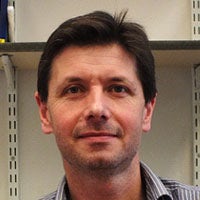
Philip’s primary interest is understanding how a surface can modifies or direct a chemical reaction. Work has been concerned with understanding the reactions of molecules at surfaces characterised both chemically and structurally at the atomic level. Other aspects of our work include studying the mechanism of photocatalysis.
Reza Ahmadian
Reza’s research includes flood risk management including: flash flood and hazard, Sustainable Flood Management, evacuation planning,
water quality and sediment transport modelling. His work includes modelling bacteria, viruses, nutrients and emerging pollutants, monitoring for bathing water and aquaculture sites, warning and autonomous systems, water security.
Peter Randerson
Peter’s research covers pollutant removal and nutrient recovery from effluents and waste water (biofiltration), using constructed wetland systems and the production of biomass crops.
Rhoda Ballinger
Rhoda specialises in coastal and estuarine management; marine environmental management and coastal management education
Rhys Jones
A specialist in herpatology, parasitology, evolutionary biology and science communication assessment. Rhys works extensively with the media.
Rupert Perkins
Rupert is a specialist researchers in algal photophysiology and productivity; taste and odour compounds in reservoirs; catchment management; variable chlorophyll floursecence and sediment/water column biogeochemistry.
Sarah Perkins
Sarah’s research examines the role of individuals in disease persistence and invasion; social networks and infectious disease dynamics; citizen science and the use of AI to track disease.
Shailen Nandy
Shailen’s research has focused on aspects of international development, and on poverty analysis and anti-poverty strategies including the problem of multiple malnutrition in young children in West and Central Africa. Interested in social policy and its role in national development strategies in the era of the Sustainable Development Goals.
Shunqi Pan
Shunqi’s research covers the physical and numerical modelling of coastal and estuarine processes; prediction of large-scale extreme waves and surge; climate change impacts to the marine environment; coastal defences and flooding and marine renewable energy.
Siân Griffiths
Siân’s research focuses on the behavioural ecology and the evolution of fish schooling; consequences of climate change for fish behaviour and river ecology; ecosystem quality and the distribution of fish in rivers.
Steve Ormerod
With a research focus on global change effects on freshwater organisms and ecosystems; river biodiversity and ecosystem services Steve is a leading specialist in riverine and wetland bird ecology.
Stuart Capstick
Stuart’s research examines cross-cultural understanding of climate change and environmentally-significant behaviours.
Thomas Connor
Thomas’s research focuses on pathogen evolution; bioinformatic; computational biology; sequencing; phylogenetics; population genomics; and public health.
Thomas Woolley
Thomas’s research areas include mathematical biology, ecology, morphogenesis, reaction-diffusion theory, cellular motion, stochastic dynamics, neurobiology and oncology.
Tom Beach
Tom’s research covers the data science associated with monitoring and sensing of built environment assets ( including optimisation and artificial intelligence) including the management and integration of disparate data sources.
Victoria Garcia Rocha
Victoria’s research covers materials science, chemistry and engineering of carbon-based composite materials and ceramics.
Wouter Poortinga
An environmental psychologist, based in the Welsh School of Architecture and the School of Psychology. Expertise in psychological and behavioural aspects of single-use plastics. Other research interests are in human-environment interactions, including:
environmental risk perception
sustainable behaviours and lifestyles
Yacine Rezgui
Yacine specialises in modelling, data analytics, informatics (semantics), knowledge management; catchment and urban water management; resilience of the built environment to natural disasters; smart cities.
Zhihua Xie
Zhihua’s research covers computational fluid dynamics, turbulence modelling, interfacial and multiphase flows, water wave mechanics, hydrodynamics, hydraulics and marine renewable energy.
Catrin Williams
Catherine has multi-disciplinary research interests, from pure microbiology to physico-chemical techniques and microwave engineering. Her work addresses important research themes, such as antimicrobial resistance, biomedical imaging and bioelectromagnetics.
Catherine Wilson
Catherine’s research focuses on environmental hydraulics, including both natural flood management methods and traditional hard engineering methods. She also looks at fish swimming hydrodynamics and sediment transport dynamics, including hydropower turbines.
Calvin Jones
Calvin’s research focuses on sustainable regional development, energy economics, and Artificial Intelligence, automation and future skills. He also looks at the environmental impact of economic activity, particularly of ‘non-traditional’ activities such as tourism and sport.
Ben Ward
Ben is an inorganic chemist with an interest in organometallic chemistry and homogeneous catalysis, especially when applied to polymer formation and degradation. He has particular expertise in the development and understanding of catalysts using Earth-abundant metals, using a combination of experimental and computational methods.
Andrew Weightman
Andrew’s research includes work on microbiomes, microbes and informatics.
Alberto Roldan Martinez
Alberto’s research is based on computer simulation linking materials composition and atomic structure to the reactivity of relevance to chemistry and sustainable industry. He is particularly interested in the recovery and utilisation of chemicals in wastewaters.
Alan Kwan
Alan’s research focuses on sustainable informatics and in particular, telemetry, control systems, optimisation, predictive simulation, networks, web-based real-time decision support systems.
Adrian Healy
A UKRI Future Research Fellow, Adrian’s research focuses on the resilience of people and places, urban groundwater and water resilience in sub-Saharan Africa.

